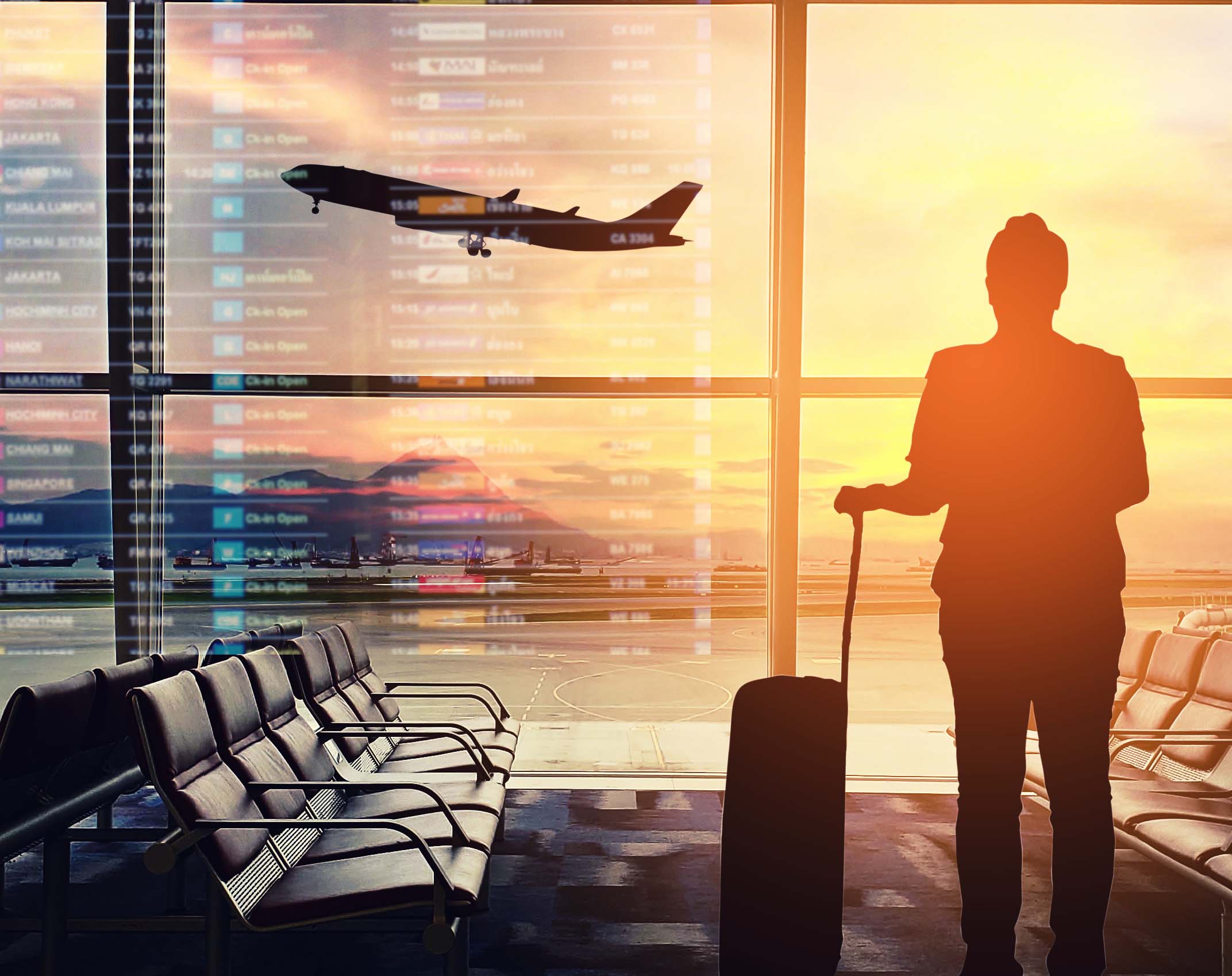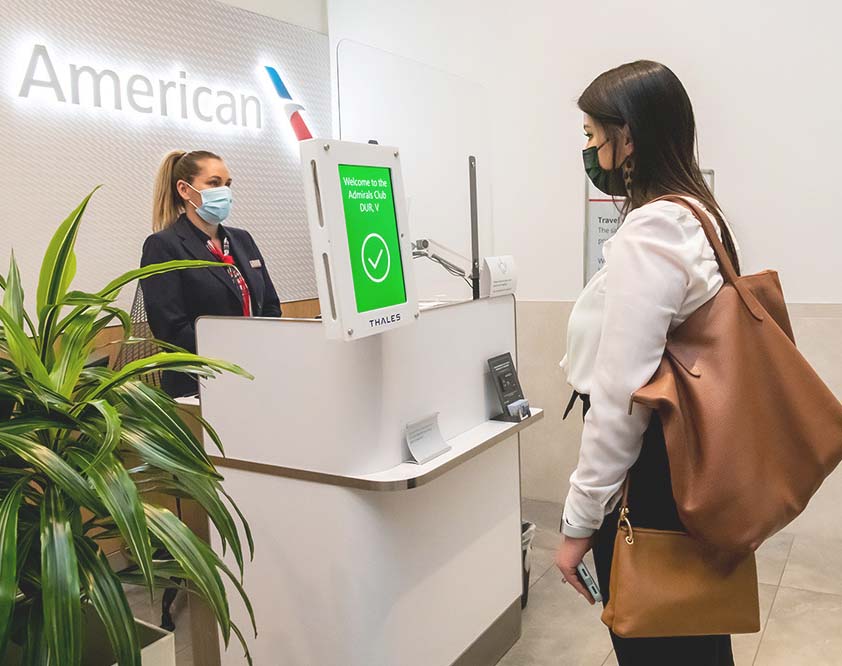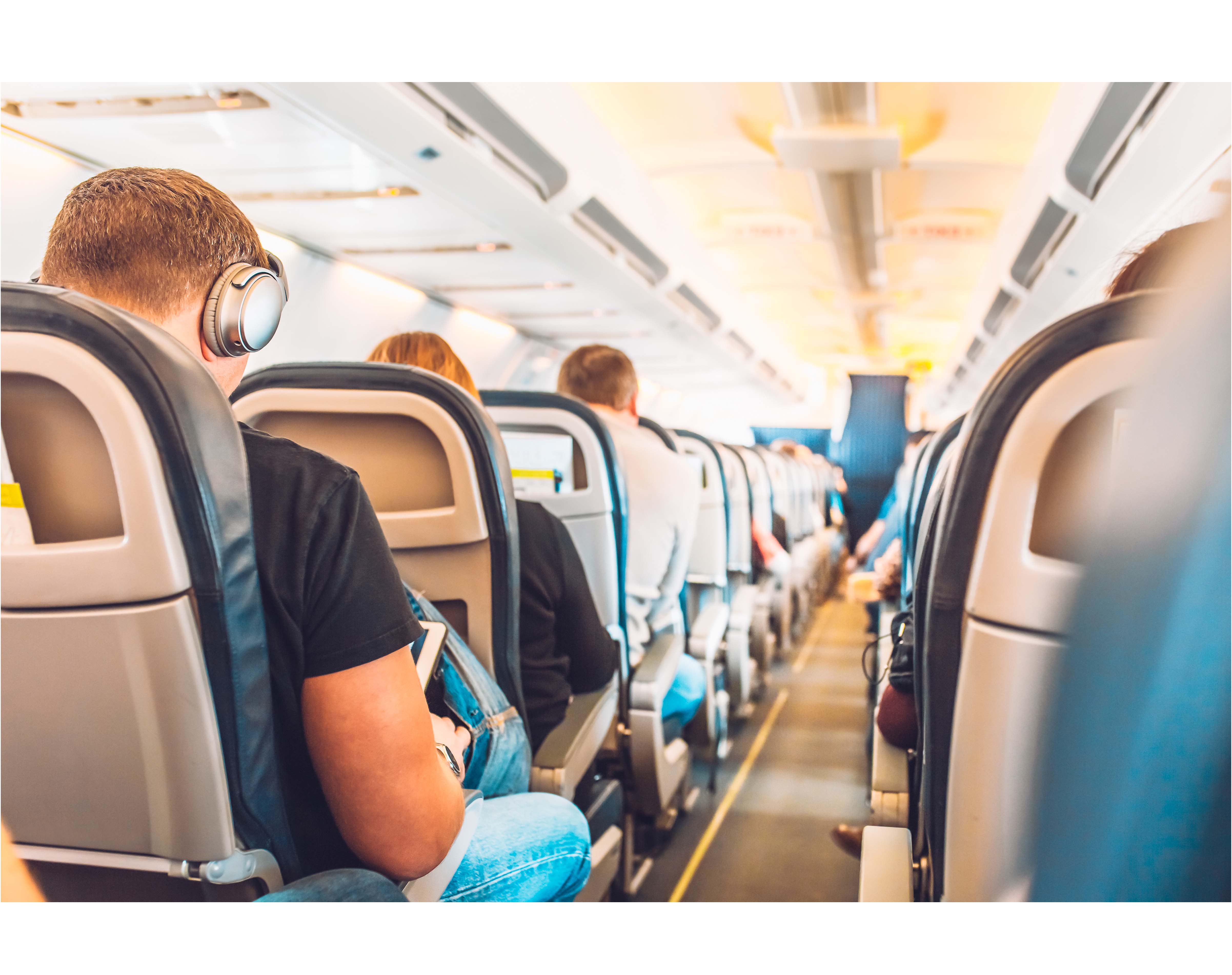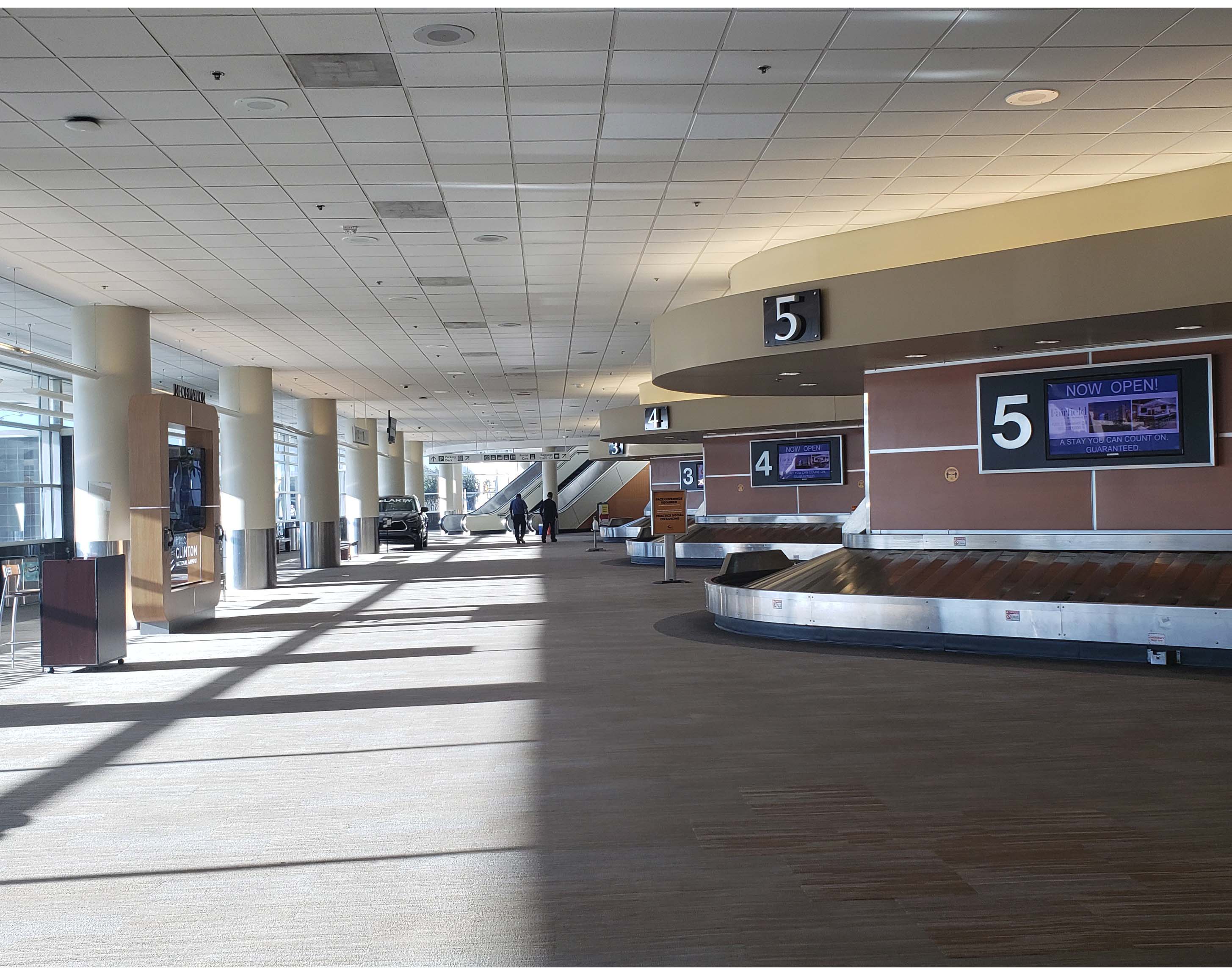Summer chaos
July 25-31, 2022
By Wesley Brown
With about a month left before the 2022 vacation season ends, Arkansas and other U.S. tourists seeking a last-minute respite before Labor Day are hoping they won’t face the air travel disruptions that pushed pandemic weary travelers to the brink.
Whether traveling by air, land or sea, airline industry experts say the 2022 vacation is turning out to be one of the worst for consumers in recent history. Across the globe, travelers are experiencing delayed and canceled travel plans, mishandled baggage, high energy prices and inflated costs for all travel expenses on everything from hotels to rental cars and jacked-up baggage fees.
On July 20, the U.S. Department of Transportation (DOT) released its Air Travel Consumer Report (ATCR) on airline operational data compiled for the month of May 2022 for on-time performance, consumer complaints received, mishandled baggage, and mishandled wheelchairs and scooters. Although there was a 15% decline in complaints against airlines from April to May, consumer grievances are still 200% above pre-pandemic levels.
The ATCR is designed to assist consumers with information on the airline service quality. DOT officials said they are committed to ensuring that airline passengers are treated fairly and concerned about recent flight cancellations and disruptions.
The Department’s Office of Aviation Consumer Protection (OACP) is monitoring airlines’ operations to ensure that airlines are not engaging in unrealistic scheduling of flights and are complying with aviation consumer protection requirements. This includes ensuring consumers receive prompt refunds if they are no longer interested in continuing their travel when their flights are canceled or significantly changed.
However, the DOT’s most recent industry report shows that the COVID-19 pandemic in May resulted in significant changes to airline schedules and operations. The 590,957 flights operated in May were 86.9% of the 680,165 flights operated at pre-pandemic levels two years ago. Operated flights in May 2022 were up 14.1% year-over-year from the 517,709 flights operated a year ago and up 4.24% month-over-month from the 566,893 flights operated in April 2022.
In May 2022, the 10 marketing network carriers reported 602,950 scheduled domestic flights, 11,993 (2%) of which were canceled. In May 2021, the same airlines reported 520,059 scheduled domestic flights, 2,350 (0.5%) of which were canceled. In April 2022, airlines scheduled 580,290 domestic flights, of which 13,397 (2.3%) were canceled.
Earlier in April, Consumer Reports called on Transportation Secretary Pete Buttigieg to take more aggressive action to ensure airline passengers are treated fairly amid a record number of flight cancellations and delays. The consumer advocate group submitted a petition to the DOT signed by nearly 30,000 people urging Buttigieg to push for clear and enforceable passenger rights in such cases and to hold airlines accountable when they fail to minimize flight disruptions.
“After two years of nonstop travel chaos, it’s time for Secretary Buttigieg to bring order, fairness and accountability to the airline industry,” said William J. McGee, aviation advisor for Consumer Reports. “Secretary Buttigieg should investigate and hold airlines accountable when they fail to minimize flight cancellations and withhold refunds to passengers who were legally entitled to them. We need new rules and stronger oversight by the Department of Transportation that require airlines to accommodate and compensate passengers fairly during flight delays and cancellations.”
Consumer Reports’ letter to Buttigieg also points out that passengers affected by flight cancellations are largely at the mercy of their airline’s Contracts of Carriage. These lengthy and dense contracts don’t always provide clear answers to critical questions about compensation and accommodations and vary widely from carrier to carrier. By contrast, the European Union (EU) has provided and enforced a set of uniform, easy-to-understand rules for travelers and Canada has a similar passenger bill of rights.
The consumer advocacy group’s letter asked U.S. transportation regulators for one set of clear, consistent rules uniformly applied to all airlines operating in the U.S. so passengers can understand and assert their rights when faced with lengthy flight delays, canceled flights, involuntary bumping or mishandled baggage.
The petition also calls for the DOT to adopt a new rule that would allow passengers to cancel flights and get a full refund during “force majeure” events such as a global pandemic. Many consumers who canceled flights due to COVID-19 health concerns and government lockdowns have been frustrated that the airlines offered vouchers for future travel instead of providing refunds.
Finally, Consumer Reports renewed its call for Secretary Buttigieg to prohibit airlines from charging families extra fees for sitting with young children on flights. In 2016, Congress passed legislation authorizing the DOT to end such fees for children under 13, yet the practice continues. Earlier, a Consumer Reports’ Freedom of Information Act request of passenger complaints found that children as young as one were assigned seats apart from their families, which raises serious concerns over COVID-19 health protocols, emergency evacuations and inflight sexual assaults.
On July 8, Buttigieg finally responded to rising concerns on protecting airline passengers after DOT officials published the first-ever Airline Passengers with Disabilities Bill of Rights and issued a notice to airlines to seat young children next to a parent.
“[These] announcements are the latest steps toward ensuring an air travel system that works for everyone,” said Buttigieg. “Whether you’re a parent expecting to sit together with your young children on a flight, a traveler with a disability navigating air travel, or a consumer traveling by air for the first time in a while, you deserve safe, accessible, affordable and reliable airline service.”
The new aviation Bill of Rights provides a convenient, easy-to-use summary of existing law governing the rights of air travelers with disabilities. Buttigieg said the new regulations will empower air travelers with disabilities to understand and assert their rights and help ensure that U.S. and foreign air carriers and their contractors uphold those rights.
The DOT regulations were developed using feedback from the Air Carrier Access Act Advisory Committee, which includes representatives of passengers with disabilities, national disability organizations, air carriers, airport operators, contractor service providers, aircraft manufacturers, wheelchair manufacturers, and a national veterans organization representing disabled veterans.
The Department of Transportation’s OACP officials also issued a notice urging U.S. airlines to ensure that children who are age 13 or younger are seated next to an accompanying adult with no additional charge. Although the Department receives a lower number of complaints from consumers about family seating than some other flight issues, there continues to be complaints of instances where young children, including a child as young as 11 months, are not seated next to an accompanying adult.
Later this year, OACP said it will initiate a review of airline policies and consumer complaints filed with the Department. If airlines’ seating policies and practices are found to be barriers to a child sitting next to an adult family member or other accompanying adult family member, the Department will be prepared for potential actions consistent with its authorities.
Similar to 2020 and 2021, refunds continue to be the highest category of complaints received by the DOT, and flight problems are the second highest.
To process and investigate these voluminous complaints, DOT said it has increased staff handling consumer protests by 38%. Also, OACP has initiated investigations against more than 20 airlines for failing to provide timely refunds. One probe resulted in the highest penalty ever assessed against an airline, officials said.
In addition, OACP said it will continue to monitor airline delays and cancellations to ensure airline compliance with consumer protection requirements.
DOT is considering future action in this area to better protect consumers. DOT also intends, later this year, to issue consumer protection rulemakings on airline ticket refunds and transparency of airline ancillary fees.
Meanwhile, Americans traveling overseas are still facing travel and tarmac delays that have left millions stranded this summer. The International Air Transport Association (IATA) on July 13 expressed concern that a premature return to pre-pandemic slot use rules in the EU this winter risks continuing disruption to passengers.
The European Commission has announced it intends to return to the longstanding 80-20 slot use rule, which requires airlines to operate at least 80% of every planned slot sequence. Global slot rules are an effective system for managing access to and the use of scarce capacity at airports. IATA officials said the system has stood the test of time and while airlines are keen to restart services, the failure of several key airports to accommodate demand, coupled with increasing air traffic control delays, means a premature return to the 80-20 rule could lead to further passenger disruption.
The evidence so far this summer has not been encouraging. Airports had the 2022 summer season schedules and final slot holdings in January and didn’t evaluate how to manage this in time. Airports declaring that full capacity is available and then requiring airlines to make cuts this summer shows the system is not ready for reviving “normal” slot use this winter season, which begins at the end of October.
“The chaos we have seen at certain airports this summer has occurred with a slot use threshold of 64%. We are worried that airports will not be ready in time to service an 80% threshold by the end of October. It is essential the Member States and Parliament adjust the Commission’s proposal to a realistic level and permit flexibility to the slot use rules. Airports are equal partners in the slot process, let them demonstrate their ability to declare and manage their capacity accurately and competently and then restore the slot use next summer,” said Willie Walsh, IATA’s Director General.
Photo Captions:
1. Airline delays, cancellations, mishandled baggage and inflated costs causing travel concerns ahead of Labor Day
2. Summer travel plans still bogged down by COVID-19 concerns, ongoing airline industry woes
3. The U.S. Department of Transportation reported air travel consumer complaints through the end of May are up 200% compared to pre-pandemic levels. The COVID-19 pandemic continued to change airline schedules and operations significantly, officials said.
4.Flight problems were the second highest category of the complaints received in May 2022, according to the DOT. Of the 4,344 complaints received, 1,034 (23.8%) concerned cancellations, delays, or other deviations from airlines’ schedules.






